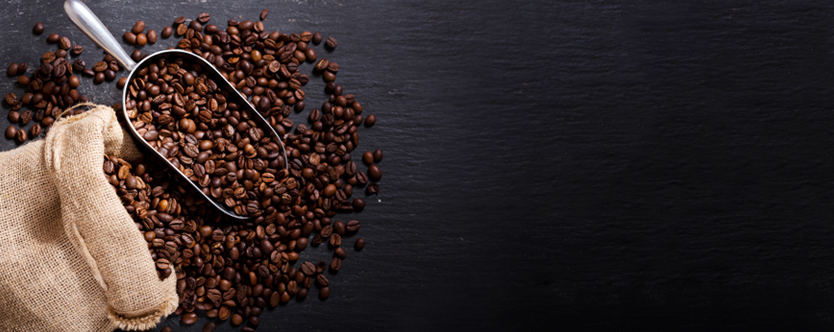
Are you addicted to Coffee?
Many of us love to start the day with a steaming cup of coffee. Many also enjoy additional cups through the day. Though you needn’t be worried if you enjoy an occasional cuppa, if you really look at the way people consume coffee and softdrinks you will find that most people consume more than 300mg per day. One cup is equal to a six ounce serving or 180ml. This would contain between 70-80mg of caffeine. But most people drink a large mug of coffee equal to 12 to 14 ounces, which contains 160mg of caffeine per mug. Two to three such mugs a day makes you caffeine intake approximately 500mg per day.
It is important to know that caffeine’s effects are different for each person. Some people mostly men can successfully detoxify 300mg of caffeine over the course of a day without any serious damage to the body. While most women are almost certain to experience significant adverse effects from the same amount of caffeine. As for someone under a great deal of stress, even one cup may be enough to trigger the negative effects of caffeine. The effects of caffeine depend on your age, stress levels, body weight, gender & general health status. It is also true that caffeine may affect the same person differently at different times. Most of the negative effects of caffeine are not a concern with occasional use, but can occur with regular use of more than 100mg in some individuals.
- Headaches
- Heartburn
- Anxiety leading to pain attacks
- Anemia and Osteoporosis
- Increased blood pressure, increase in cholesterol and triglyceride levels
- Palpitations, heart rhythm disturbances and increased risk of heart attacks
- Loss of minerals such as potassium, magnesium, calcium and zinc.
- Do you depend on caffeine for your bowel movement?
- Do you experience stiffness in your neck, shoulders & legs?
- Do you suffer from PMS, cramps and painful lumps in the breasts?
- Do you experience frequent mood swings & anxiety?
- Do you suffer from gas, bloat & cramps?
- Do you wake up feeling tired?
- Do you experience irregular heartbeat & occasional shortness of breath?
- Do you have cold hands?
- Do you have body ache and back pain?
- Do you experience stiffness in your joints?
If you have said yes to at least 5 conditions, then you should think about decreasing your caffeine intake.
A caffeine detoxification diet comprising a healthy diet with extra vitamin and mineral support will relieve your body of caffeine toxins and help you get rid of your addiction.
Spread the detox program over a week or two and gradually reduce caffeine intake. Begin by substituting caffeine with black tea- this contains less caffeine and will help you taper off. Alternatively, try lowering your caffeine intake by drinking water processed decaffeinated coffee or blends of grain coffee or smaller amounts of regular coffee. If you experience headaches, which are quite common during the detox phase, you could take a pain killer occasionally. White willow bark herb tablets contain a natural salicylate which helps relieve withdrawal symptoms. During detox, your diet should essentially be alkaline. Drink at least six to eight glasses of filtered water everyday. Sipping herbal teas or mineral water is a good way to substitute the coffee habit. Baking soda or preferably, potassium bicarbonate tablets help to make the body more alkaline and reduce withdrawal symptoms.
Extra vitamin C supplementation, of several grams, is a must as it supports the adrenal gland and eases stress. B complex vitamins with extra pantothenic acid (250mg four times daily), along with 500gms of Vitamin C every four hours is also recommended. These include thiamine, riboflavin, pyridoxine, iron, calcium, magnesium, potassium zinc and the trace minerals. Additional fiber and water intake maintains the bowel function, which tend to slow down during the withdrawal phase.
The post-detox diet should consist of vegetable salads, soups, greens, corn, seaweed, whole grains, soy products, sprouts and nuts and seeds. You can snack on fruits. Reduce intake of acid causing foods such as meat, sugar and refined flour and of baked goods including whole grain products. As you shift from caffeinated beverages, you can include a number of herbal substitutes to give you a stimulating and refreshing boost without the ill-effects of caffeine. You can consider drinking herbal coffee made of roasted herbal roots like barely, chicory and dandelion. Grain coffees and ginseng root teas are also popular among former coffee drinkers. Herbal teas prepared with lemon grass, peppermint, ginger root are also nourishing alternatives to caffeinated beverages.Remember, habits are not inborn, they are learnt, anything you learn, you can also unlearn. After detoxification, avoid the daily use of caffeine. If you have an occasional cup of coffee, do so during mid to late afternoon which best fits our body’s natural cycle.
ANJALI MUKERJEE, Nutritionist, Founder Director-Health Total, having health centers
in Mumbai, Delhi, Bangalore, Pune -manages obesity & other health related disorders.
Contact numbers: 1800 8918131/+91 86575 61727
For further information, Visit www.health-total.com
